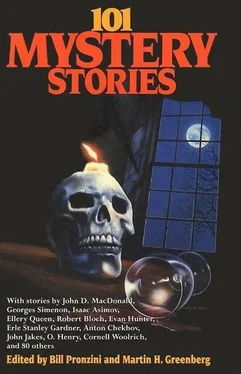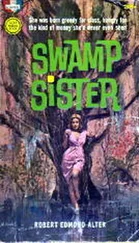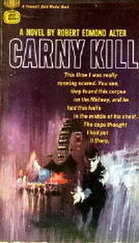Robert Alter - 101 Mystery Stories
Здесь есть возможность читать онлайн «Robert Alter - 101 Mystery Stories» весь текст электронной книги совершенно бесплатно (целиком полную версию без сокращений). В некоторых случаях можно слушать аудио, скачать через торрент в формате fb2 и присутствует краткое содержание. Город: New York, Год выпуска: 1986, ISBN: 1986, Издательство: Avenel Books, Жанр: Детектив, на английском языке. Описание произведения, (предисловие) а так же отзывы посетителей доступны на портале библиотеки ЛибКат.
- Название:101 Mystery Stories
- Автор:
- Издательство:Avenel Books
- Жанр:
- Год:1986
- Город:New York
- ISBN:978-0-517-60361-1
- Рейтинг книги:3 / 5. Голосов: 1
-
Избранное:Добавить в избранное
- Отзывы:
-
Ваша оценка:
- 60
- 1
- 2
- 3
- 4
- 5
101 Mystery Stories: краткое содержание, описание и аннотация
Предлагаем к чтению аннотацию, описание, краткое содержание или предисловие (зависит от того, что написал сам автор книги «101 Mystery Stories»). Если вы не нашли необходимую информацию о книге — напишите в комментариях, мы постараемся отыскать её.
101 Mystery Stories — читать онлайн бесплатно полную книгу (весь текст) целиком
Ниже представлен текст книги, разбитый по страницам. Система сохранения места последней прочитанной страницы, позволяет с удобством читать онлайн бесплатно книгу «101 Mystery Stories», без необходимости каждый раз заново искать на чём Вы остановились. Поставьте закладку, и сможете в любой момент перейти на страницу, на которой закончили чтение.
Интервал:
Закладка:
“Not unless I have to. I suppose you’re bright enough to figure out what I mean by that?”
I took a poker out of the stand. “I’ve never been blackmailed before. But then I suppose there’s a first time for everything.”
Her eyes became wary. “This is apparently the ideal moment to remind you that I’ve taken the usual precautions. I’ve put all this into a letter, and if I should happen to depart this earth violently, or just disappear, it will naturally be forwarded to the police.”
I examined the poker critically. “Washed this thoroughly after I whacked Mrs. Linton. Had to get a new rug, too.”
She was curious. “Why did you kill her?”
“Just one of those things. Could happen to anybody. Women have a tendency to magnify what men would regard as basically casual.” I sighed. “I don’t often lose my temper to that extent, but I did have a headache and a screeching woman on my hands did not help to improve the situation.”
I studied Madelaine. “You are a naughty blackmailer and I ought to call the police. But I will resist that temptation because I am magnanimous, generous and forgiving to a fault. I don’t want to see you go to prison.”
“How charming. But somehow I doubt your motive.”
“Madelaine,” I said, “you quite properly remembered the numerals on the license plate, but you should have paid a little more attention to the prefix P.”
“Really? Why?”
“In this state,” I said, “the prefix letters A and B are reserved for the month of January. They indicate that the license was issued in that month and expires in the same month the next year. C and D are reserved for February. E and F for March. And so on until we come to the letter P, which is reserved for August.”
She didn’t understand what I was driving at.
“Let me put it this way,” I said. “In April you saw an automobile with the license number P31416. In other words, your murderer’s license plates were due to expire in August of this year. They did. And he got another set of plates and another number. And since mine expire in August too, I happened to be in line when the bureau issued P31416.”
I finished my drink. “When you fluttered your eyes at that tall clerk, Madelaine, you should have asked who had license number P31416 in April, not who happens to have it now. ”
It took her a few moments to accept that. “It wasn’t your car? You didn’t murder Mrs. Linton?”
“Of course not.”
Her eyes became thoughtful.
“Madelaine,” I said, “I suppose now you’re going back to the license bureau and make you questions more specific? But perhaps your murderer is really a poor man. What profit is there in that?”
“You forget the very big and very expensive car.”
“You have a definite point to keep you interested, Madelaine. However, the license bureau is undoubtedly closed for the night and it’s probably raining outside or something. There’s no need to run away.”
I made two more drinks and brought her a glass.
She regarded me. “It’s a pity. I expected a rather profitable evening. You are the Brannon of Brannon Bakeries, aren’t you?”
“The very same.” I sat down beside her. “Before you approach your murderer, Madelaine, would you do me one slight favor? Would you alter your letter to include his name instead of mine?”
“Oh, that,” she said. “There’s no letter. I’m practical enough to know I can’t enjoy revenge from the grave.”
I raised my glass in a silent toast to P31416.
It was a small conceit begun by my father and the license bureau has been cooperative. We have had the same number reserved for our family for fifteen years. The Brannon Bakeries were founded on the production of pie.
My eyes went to the poker.
No, not now, I thought. Later.
I moved closer to Madelaine and smiled.
98
The Explosives Expert
John Lutz
Billy Edgemore, the afternoon bartender, stood behind the long bar of the Last Stop Lounge and squinted through the dimness at the sunlight beyond the front window. He was a wiry man, taller than he appeared at first, and he looked like he should be a bartender, with his bald head, cheerfully seamed face and his brilliant red vest that was the bartender’s uniform at the Last Stop. Behind him long rows of glistening bottles picked up the light on the mirrored backbar, the glinting clear gins and vodkas, the beautiful amber bourbons and lighter Scotches, the various hues of the assorted wines, brandies and liqueurs. The Last Stop’s bar was well stocked.
Beyond the ferns that blocked the view out (and in) the front window, Billy saw a figure cross the small patch of light and turn to enter the stained-glass front door, the first customer he was to serve that day.
It was Sam Daniels. Sam was an employee of the Hulton Plant up the street, as were most of the customers of the Last Stop.
“Afternoon, Sam,” Billy said, turning on his professional smile. “Kind of early today, aren’t you?”
“Off work,” Sam said, mounting a bar stool as if it were a horse. “Beer.”
Billy drew a beer and set the wet schooner in front of Sam on the mahogany bar. “Didn’t expect a customer for another two hours, when the plant lets out,” Billy said.
“Guess not,” Sam said, sipping his beer. He was a short man with a swarthy face, a head of curly hair, and a stomach paunch too big for a man in his early thirties — a man who liked his drinking.
“Figured you didn’t go to work when I saw you weren’t wearing your badge,” Billy said. The Hulton Plant manufactured some secret government thing, a component for the hydrogen bomb, and each employee had to wear his small plastic badge with his name, number and photograph on it in order to enter or leave the plant.
“Regular Sherlock,” Sam said, and jiggled the beer in his glass.
“You notice lots of things when you’re a bartender,” Billy said, wiping down the bar with a clean white towel. You notice things, Billy said to himself, and you get to know people, and when you get to know them, really get to know them, you’ve got to dislike them. “I guess I tended bar in the wrong places.”
“What’s that?” Sam Daniels asked.
“Just thinking out loud,” Billy said, and hung the towel on its chrome rack. When Billy looked at his past he seemed to be peering down a long tunnel of empty bottles, drunks and hollow laughter; of curt orders, see-through stares and dreary conversations. He’d never liked his job, but it was all he’d known for the past thirty years.
“Wife’s supposed to meet me here pretty soon,” Sam said. “She’s getting off work early.” He winked at Billy. “Toothache.”
Billy smiled his automatic smile and nodded. He never had liked Sam, who had a tendency to get loud and violent when he got drunk.
Within a few minutes Rita Daniels entered. She was a tall, pretty woman, somewhat younger than her husband. She had a good figure, dark eyes, and expensively bleached blonde hair that looked a bit stringy now from the heat outside.
“Coke and bourbon,” she ordered, without looking at Billy. He served her the highball where she sat next to her husband at the bar.
No one spoke for a while as Rita sipped her drink. The faint sound of traffic, muffled through the thick door of the Last Stop, filled the silence. When a muted horn sounded, Rita said, “It’s dead in here. Put a quarter in the jukebox.”
Sam did as his wife said, and soft jazz immediately displaced the traffic sounds.
“You know I don’t like jazz, Sam.” Rita downed her drink quicker than she should have, then got down off the stool to go to the powder room.
“Saw Doug Baker last night,” Billy said, picking up the empty glass. Doug Baker was a restaurant owner who lived on the other side of town, and it was no secret that he came to the Last Stop only to see Rita Daniels, though Rita was almost always with her husband.
Читать дальшеИнтервал:
Закладка:
Похожие книги на «101 Mystery Stories»
Представляем Вашему вниманию похожие книги на «101 Mystery Stories» списком для выбора. Мы отобрали схожую по названию и смыслу литературу в надежде предоставить читателям больше вариантов отыскать новые, интересные, ещё непрочитанные произведения.
Обсуждение, отзывы о книге «101 Mystery Stories» и просто собственные мнения читателей. Оставьте ваши комментарии, напишите, что Вы думаете о произведении, его смысле или главных героях. Укажите что конкретно понравилось, а что нет, и почему Вы так считаете.












